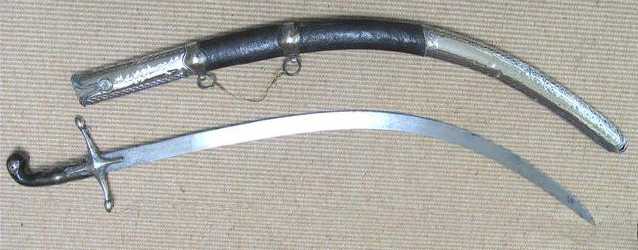FWP:
For background see S. R. Faruqi's choices. For more on Ghalib's unpublished verses, see the discussion in {4,8x}.
This verse has the same basic structure as do {84,6x} and {84,8x}.
Well, the conceit is ingenious enough: the curved shape of a scimitar is made to resemble the bent-over shape of a person bowing deeply in humble supplication. The 'I am' equates the speaker himself with his plea, just as the plea itself is equated with the scimitar that can provide such a desirable 'relish of cruelty/injustice'.
Still, the karuu;N doesn't quite seem to work. How would the speaker 'make' the curved scimitar into a bent back? Just by the sheer power of his longing? Perhaps the speaker is claiming that with his persistent pleas to be slaughtered he could importune and pester the sword until it had a 'bent back' in supplication as it begged him to stop. (After all, we do know the beloved often refuses to use her sword on the lover, as in {19,4}.)
In the obvious verse for thematic comparison, {1,3}, there's no assertion that the lover actually has any such (physical?) power over the sword; there, intriguingly, the bloody-mindedness is (said to be) that of the sword itself.

Asi:
I am a single plea for the relish of cruelty, and I am a plea such that my attraction to cruelty has reached a level where I can make the sword of tyranny into a bent back that is bent for the sake of a plea and petition. That is, the sword of tyranny itself, when facing me, would come having turned into the bent back of pleading.
== Asi, p. 162